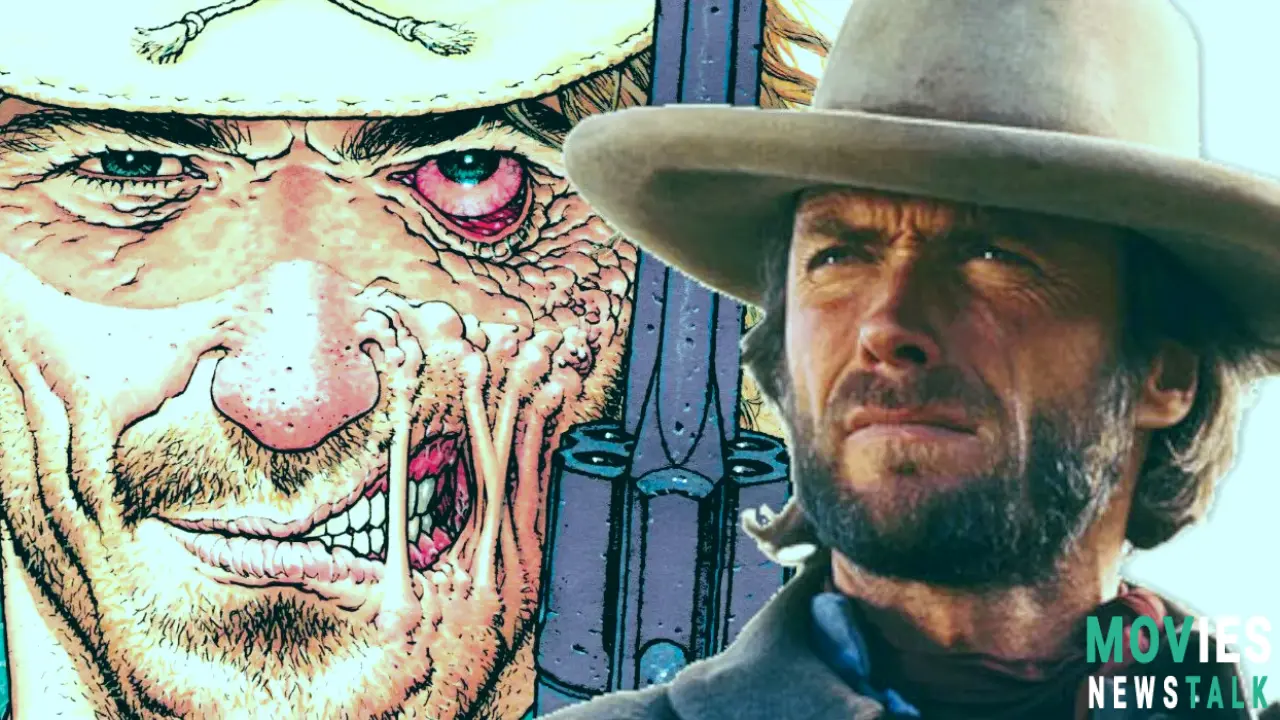Clint Eastwood as Jonah Hex? The Untold Story of a Near-Miss Western Epic!
The Unexpected Connection: Clint Eastwood and the Birth of Jonah Hex
Fans have always imagined Clint Eastwood as Jonah Hex. It seems perfect, right? But get this: that dream might've almost come true, way back in the 1970s, not long after Hex first appeared in comics. Jonah Hex, a DC Comics antihero, debuted in All-Star Western #10 (1972); an extremely rough and tumble character unlike anything typically encountered during those earlier times! This character brought an exciting new vision that impacted how western-themed superhero stories evolved.
Hex was a Civil War vet with a seriously bad attitude—gritty, realistic; the total opposite of those clean-cut Western heroes then popular.He was brutal, often shooting first and asking questions later. His design and creation was heavily inspired by Clint Eastwood's portrayal of those earlier Western characters in those epic spaghetti Westerns of the 60s, highlighting the immensely popular style present during that time.
Hex quickly became a star; his series began in 1977; a further testament to his design's clever inspiration that was well ahead of its time. This is the direct result of creating a well-written character; one so creative and ahead of the general themes that the audiences demanded more and ultimately produced even more success in sales. That sudden success sparked intense rumors and speculations regarding the adaptation from comics into an actual Hollywood project which really got a lot of people talking, with many people advocating to see Eastwood actually in this role!
The Albano Lawsuit: Did It Kill the Clint Eastwood Jonah Hex Movie?
John Albano, one of Hex's creators, left the comic (Weird Western Tales #21) abruptly. His departure’s explanation appeared only later— a conflict withDCover Hex movie rights. His grandsonJared Vianexplained there were serious legal battles involving rights and royalties concerning the property. A possible adaptation of this into an actual film fromClint Eastwood's Malpaso ProductionsandWarner Bros./DCmight’ve played a huge role.
According to an obituary fromMark Evanier, the lawsuit ended withAlbanogetting paid—but DC ostracized him and there are still questions regarding how this specific adaptation attempt failed entirely; if this is at all linked to those earlier conflicts over licensing. And let's remember:Hollywood wasn't exactly crazy about adapting comic books back then! According to long-timeDCexecutivePaul Levitz(in an interview concerning his career),Warner Bros.showed only "very limited interest," even stating his uncertainties surrounding the validity of that lawsuit itself; and even more uncertainty whether Eastwood’s production company made an adaptation proposal; casting many elements into more doubt which might make certain claims and assumptions questionable; there were even suggestions that this claim is something to be questioned even during that timeframe of the initial project proposals; this further highlights the lack of a definite concrete explanation that connects these elements completely.
Eastwood's Westerns: A Mirror to Hex's Gritty World?
Even though thatClint Eastwood/Jonah Hexmovie never happened,Hexkept appearing inDCcomics! Westerns were fading in Hollywood—butEastwoodkept the genre alive; that includes those darker-themed films such asHigh Plains DrifterandThe Outlaw Josey Wales! These share that exact same gritty tone found inWeird Western TalesandJonah Hex.
Rumors even exist which imply thatThe Outlaw Josey Walestook inspiration fromHex! The 1976 film’s storyline; a vengeful gunfighter – shares similarities with events found within the story. According to Susan Hillwig (from her very thorough “An Illustrated History of Jonah Hex” series) – Eastwood’s scar resembles a simplified version ofHex's. And the slaughter ofJosey Wales'regiment (something NOT in the novel itself) has elements of theFort Charlotte Massacre, first mentioned inWeird Western Tales #29 (1975)—a year beforeJosey Waleswas released; making a clear linkage to be drawn here, although it remains something speculative, providing yet another example for exploring what might’ve been.
The Fan Campaign: Flooding Malpaso with Jonah Hex Comics
ThatClint Eastwood/Jonah Hexdream never died, folks! Fans constantly wrote about it inJonah Hexletters columns (“Via Pony Express”)! One crazy letter fromMike Sopp(Jonah Hex #57, 1981) even included the address ofMalpaso, pleading for the company and specifically Eastwood himself to read it and become involved in this massive project; suggesting sending comics directly. That very act of dedication makes the audience feel immensely present and the fact that some people had responded suggests that there was considerable interest; enough interest for this letter writer to pursue it actively.
Even that did nothing. However, that action sparked interesting new questions concerning whether such actions by the fans alone might help affect the decision by Eastwood's company regarding the potential adaptation of Jonah Hex; despite such obvious efforts having no immediate impact! Years later,Eastwoodreturned to Westerns; makingPale Rider(1985). A supernatural Western—totally perfect forHex'sgritty, brutal vibe! And strangely enough;Jonah Hexended its series the same year.
Conclusion: A What-If Scenario That Still Fascinates Fans
ThatClint Eastwood/Jonah Hexmovie didn’t happen—but these two remain connected. From the inspiration for the comic's character's gritty realism, to the fans' hopes for seeing Eastwood in the role, a fascinating alternate history developed concerning an imagined timeline where superhero and comic-themed productions became common far sooner. Their association became so strong that it completely impacted many expectations. That legacy deserves remembering even if all evidence ofEastwood'salleged involvement remains rumor—something interesting in the development of both iconic individuals. Both remain memorable Western figures for different reasons!

